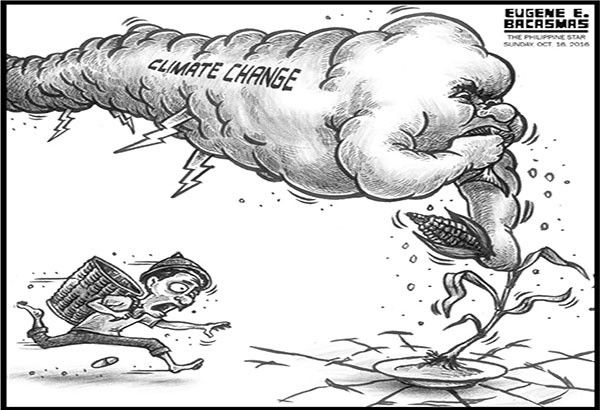EDITORIAL - Food security and climate change

The international community has committed to the ambitious goal of achieving zero hunger by 2030. But with the global population expected to hit 9.6 billion by 2050, experts say that agricultural production must rise by about 60 percent. Among the biggest roadblocks to these objectives is climate change.
As World Food Day is marked today, governments and nations are reminded that food and agricultural production must adapt to climate change. The Food and Agriculture Organization estimates that by 2050, catches of main fish species in the tropics including the Philippines are expected to be down by 40 percent. The FAO is helping to promote responsible fisheries and better management of oceans, rivers and lakes.
Efforts are also underway to improve management of livestock, which produce approximately 78 percent of agricultural methane emissions. Food wastage also contributes to global warming. About a third of food produced worldwide is lost or wasted, with rotting food accounting for an estimated 1.3 billion tons of methane. The FAO says this is 25 times more potent than carbon dioxide. Sound, sustainable soil and forestry management can promote the natural absorption of carbon dioxide.
Governments can’t do it alone. In confronting global warming, everyone can play a role. The FAO suggests eating less meat and more nutritious pulses, becoming ethical consumers and supporting small farms that are conscientious about reducing their carbon footprint. If this is too much trouble, the mere effort to reduce food waste can help.
In the Philippines, which observed World Food Day last Friday, the FAO has warned that agricultural production is particularly vulnerable to climate change, threatening anti-poverty efforts. This gives urgency to climate change mitigation efforts and sustainable practices in food production. It also highlights the importance of individual contributions. In confronting climate change, every little gesture counts.
- Latest
- Trending





























